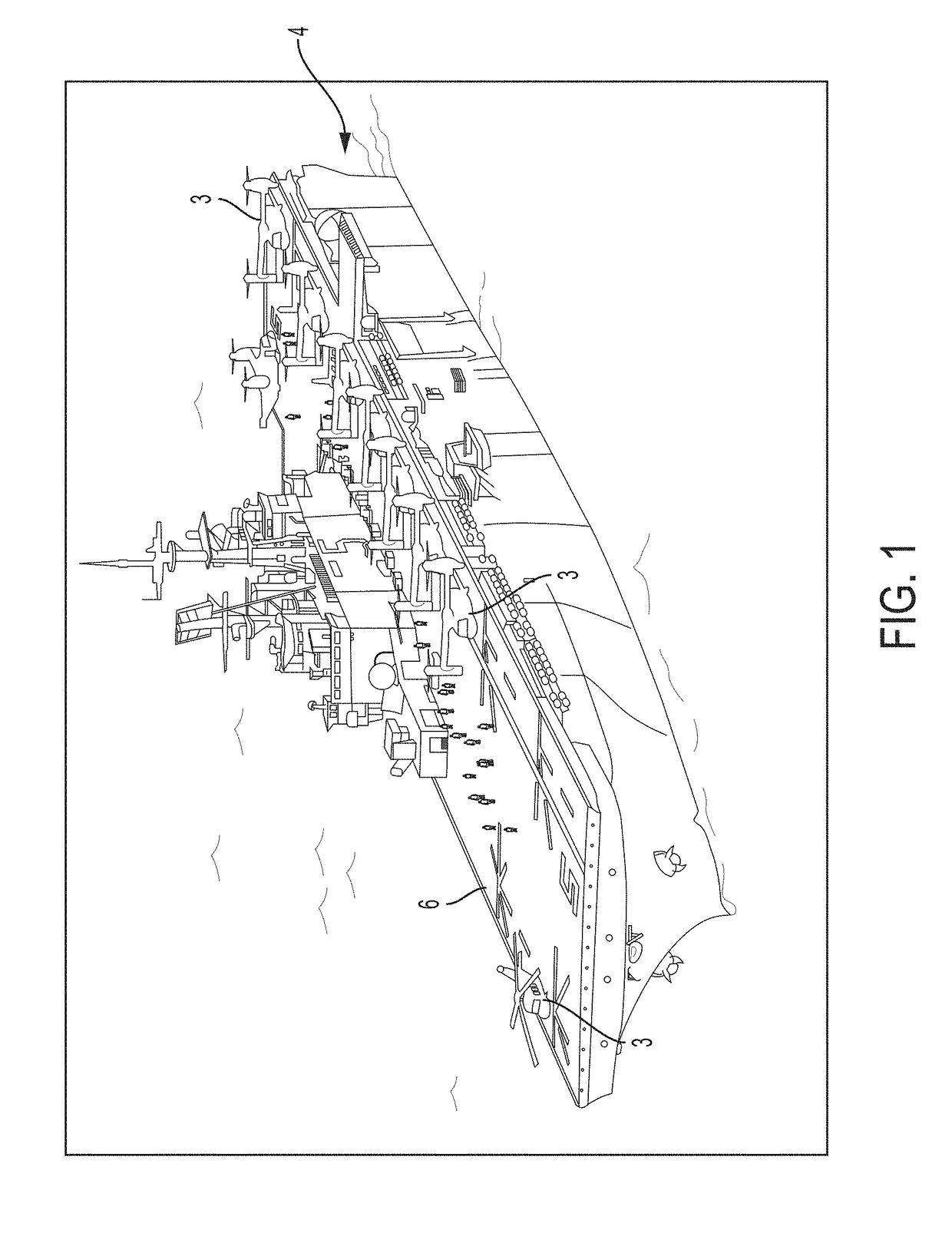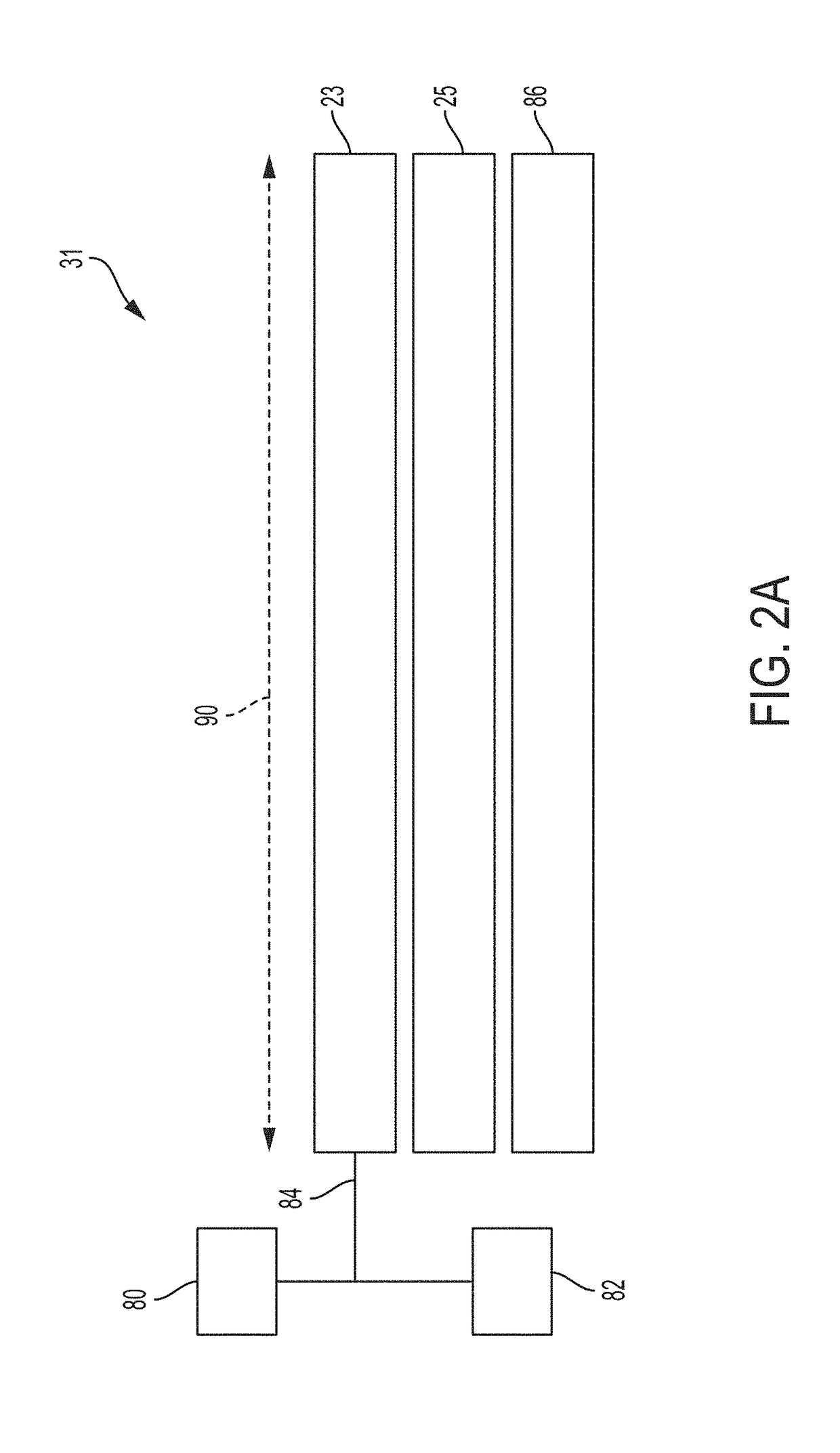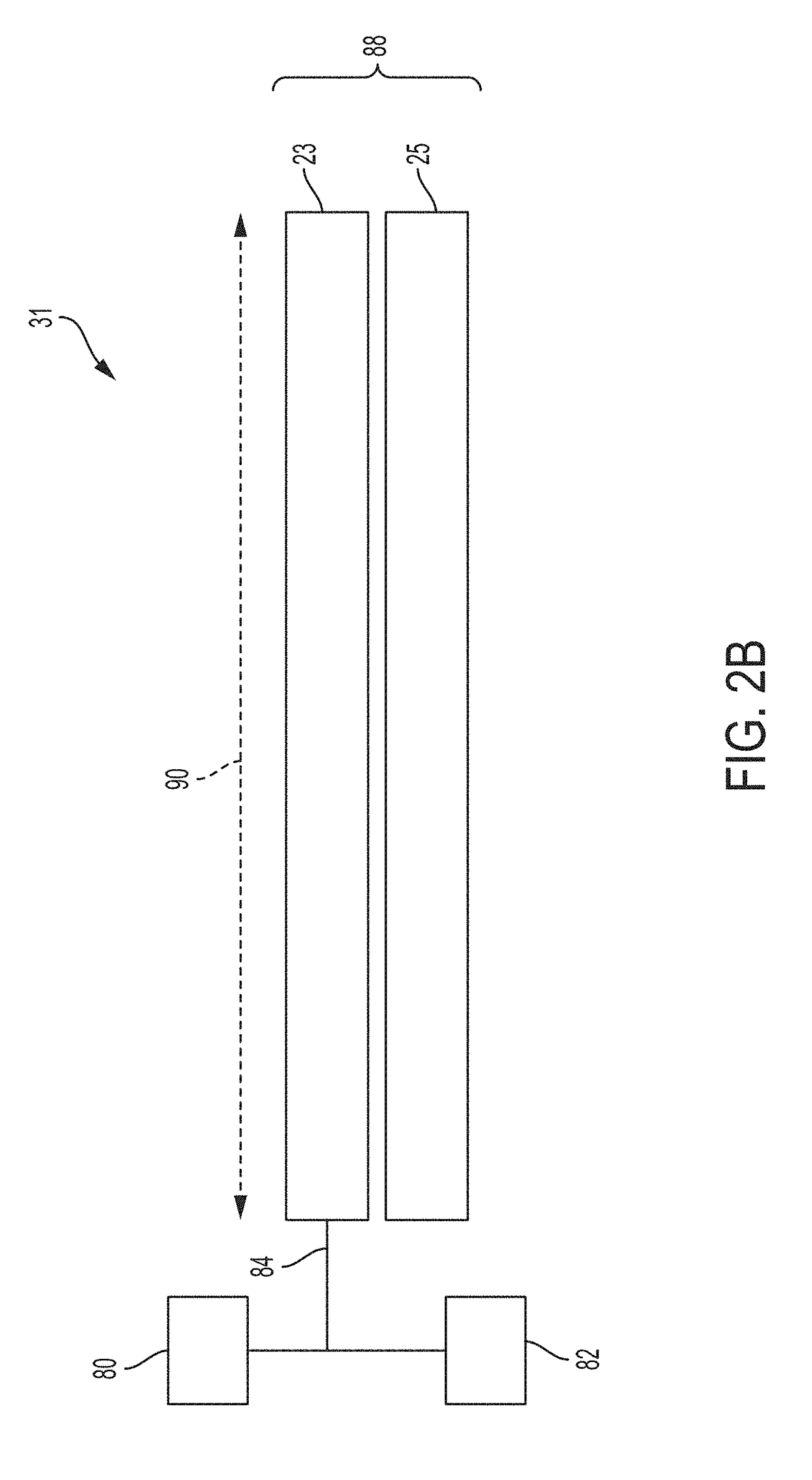Multifunctional thermal management system and related method
a multi-functional, thermal management technology, applied in the direction of indirect heat exchangers, lighting and heating equipment, ways, etc., can solve the problems of excessive heating and large deflection of the flight deck, unacceptably severe heating of the flight deck and its (organic base) non-skid coating, and facilitate the storage, transportation and eventual dissipation of thermal energy. , the effect of high localized compressive load
- Summary
- Abstract
- Description
- Claims
- Application Information
AI Technical Summary
Benefits of technology
Problems solved by technology
Method used
Image
Examples
examples
[0080]Practice of an aspect of an embodiment (or embodiments) of the invention will be more fully understood from the following examples and experimental results, which are presented herein for illustration only and should not be construed as limiting the invention in any way.
[0081]When the MV-22 Osprey is in its helicopter mode, there are two downward components of air flow impinging on the flight deck: hot exhaust gases from the jet engine and ambient temperature air from the aircraft's rotors. Both of these flows impinge upon the flight deck vertically and the streamlines are then directed radially outwards. Because the air flow induced by the aircraft's propellers is much lower than the hot exhaust air flow, it provides a potential source of cooling for the flight deck. The same is true for the F-35B′ s lift-fan air. In certain landing pad and flight deck embodiments, proposed solutions rely on exploiting the air outside the jet exhaust plume to reduce the heat deposited into th...
PUM
| Property | Measurement | Unit |
|---|---|---|
| thick | aaaaa | aaaaa |
| anisotropic | aaaaa | aaaaa |
| thermal conductivity | aaaaa | aaaaa |
Abstract
Description
Claims
Application Information
 Login to View More
Login to View More - R&D
- Intellectual Property
- Life Sciences
- Materials
- Tech Scout
- Unparalleled Data Quality
- Higher Quality Content
- 60% Fewer Hallucinations
Browse by: Latest US Patents, China's latest patents, Technical Efficacy Thesaurus, Application Domain, Technology Topic, Popular Technical Reports.
© 2025 PatSnap. All rights reserved.Legal|Privacy policy|Modern Slavery Act Transparency Statement|Sitemap|About US| Contact US: help@patsnap.com



